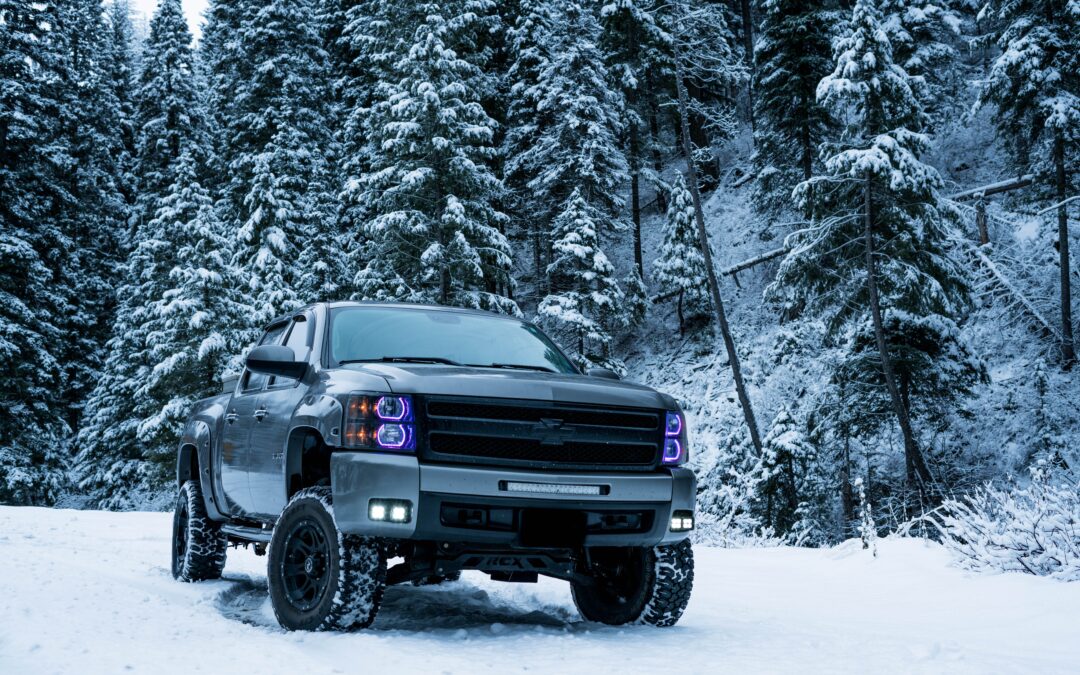As winter settles in, transforming the world into a frosty wonderland, our vehicles face a unique set of challenges. Cold temperatures, icy roads, and snowfall can all take a toll on your car if you’re not careful. To ensure your vehicle remains reliable and road-ready during the winter months, it’s essential to be mindful of certain practices that can harm your car. In this comprehensive blog post, we’ll explore ten things you should avoid doing to your car in winter.
Ignoring Tire Maintenance
Cold weather significantly impacts tire pressure, making your tires more prone to wear and tear. Neglecting tire maintenance can lead to reduced traction on slippery roads and, in extreme cases, flat tires. To avoid these issues, regularly check your tire pressure and ensure it matches the recommended levels specified in your car’s manual. Additionally, consider investing in winter tires for better traction in icy conditions.
Neglecting Fluid Levels
Fluids are the lifeblood of your vehicle, and winter demands extra care in this department. Engine oil, transmission fluid, and antifreeze are crucial for your car’s proper functioning, especially in cold weather. Check and top up these fluids regularly to prevent engine damage, transmission issues, and to ensure that your car’s components can withstand freezing temperatures.
Warming Up Your Car Excessively
While warming up your car before driving is a common practice in winter, excessive idling can do more harm than good. Modern engines are designed to warm up more efficiently while being driven. Prolonged idling can waste fuel, contribute to environmental pollution, and even dilute engine oil with unburned fuel. Instead of letting your car idle for an extended period, start driving gently to help the engine warm up faster.
Overlooking Battery Health
Cold weather puts additional strain on your car’s battery, reducing its efficiency and making it harder for the engine to start. Ensure your battery is in good condition by checking its charge and cleaning any corrosion from the terminals. If your battery is several years old, consider replacing it before the winter season to prevent unexpected breakdowns on frosty mornings.
Using Hot Water to De-ice
De-icing your car is a common winter ritual, but using hot water to melt ice on windows and locks can cause more harm than good. Rapid temperature changes, such as pouring hot water on a frozen windshield, can lead to cracks and damage. Instead, use a proper ice scraper and a de-icing solution to safely remove ice and frost from your windows and locks.
Skipping Regular Washes
Winter road treatments like salt and sand can accumulate on your car, leading to corrosion and rust. While it might be tempting to skip car washes in colder months, it’s crucial to maintain regular cleaning. Opt for an undercarriage wash to remove salt and grime, preventing long-term damage to your car’s body and chassis.

Neglecting Windshield Wipers
Winter weather can be particularly harsh on your windshield wipers. Ice buildup and freezing temperatures can cause them to become brittle and less effective. Check your wipers regularly, and if they show signs of wear, replace them. Also, lift your wipers off the windshield when parked to prevent them from freezing to the glass.
Parking Without Protection
Leaving your car exposed to the elements for extended periods can lead to a host of problems. Cold temperatures can affect various components, from the battery to the engine. Whenever possible, park your car in a garage or use a car cover to shield it from snow, ice, and freezing winds.
Ignoring Warning Lights
Winter can amplify existing issues with your vehicle, and ignoring warning lights is a risky gamble. If any warning lights appear on your dashboard, address them promptly. Cold weather can exacerbate problems, potentially leaving you stranded in the freezing cold.
Overlooking Emergency Preparedness
Winter brings unpredictable weather conditions, and it’s crucial to be prepared for emergencies. Keep an emergency kit in your car, including essentials like a blanket, flashlight, jumper cables, and non-perishable snacks. Also, make sure your phone is charged and carry a portable phone charger in case you need assistance on the road.
Winter demands extra care and attention to keep your car running smoothly. By avoiding these common mistakes, you can protect your vehicle from unnecessary wear and tear, ensuring a safer and more reliable winter driving experience. Remember, a little preventive maintenance goes a long way in preserving your car’s health during the chilly months. Stay safe on the roads, and may your winter drives be trouble-free!




